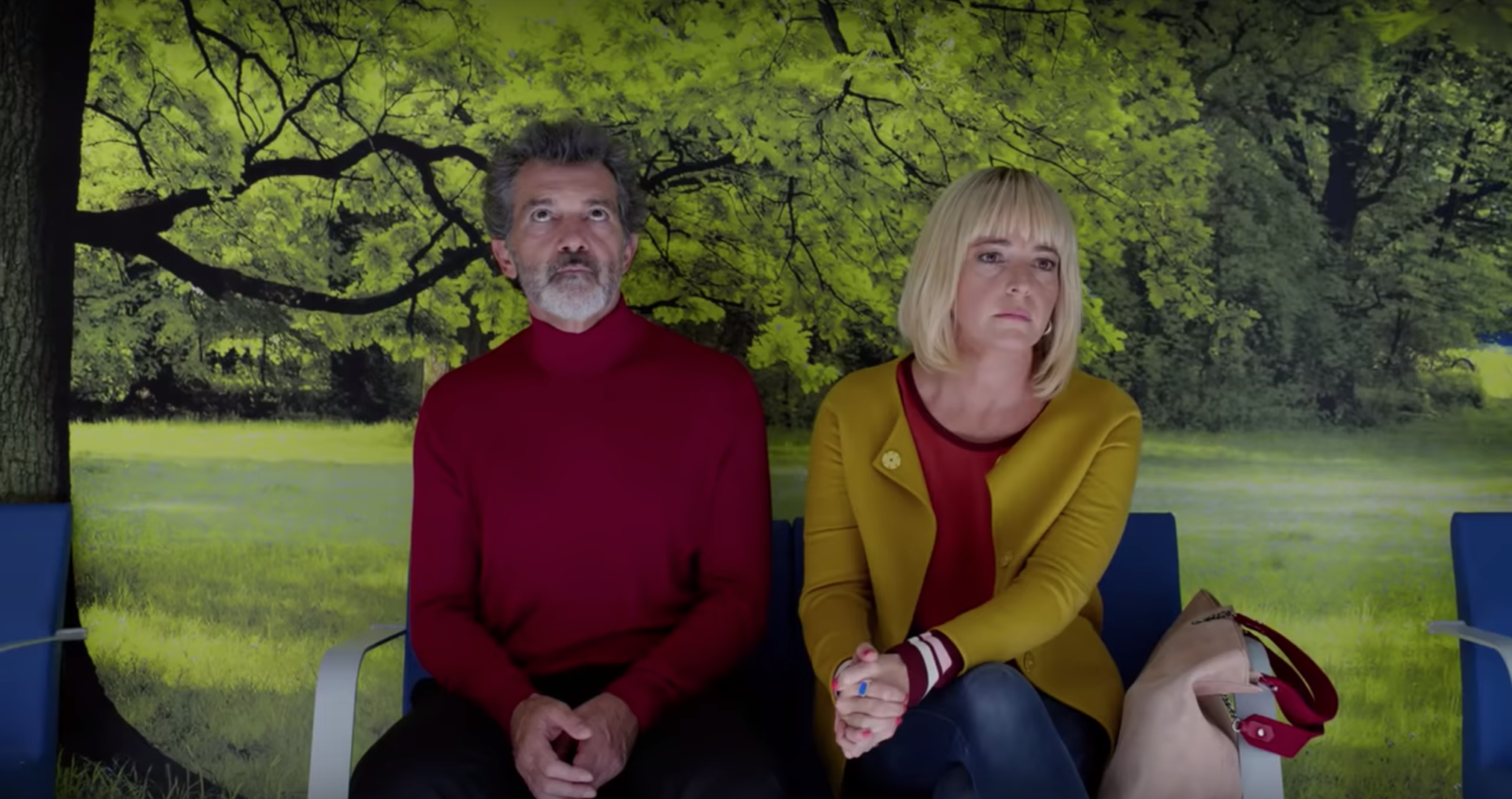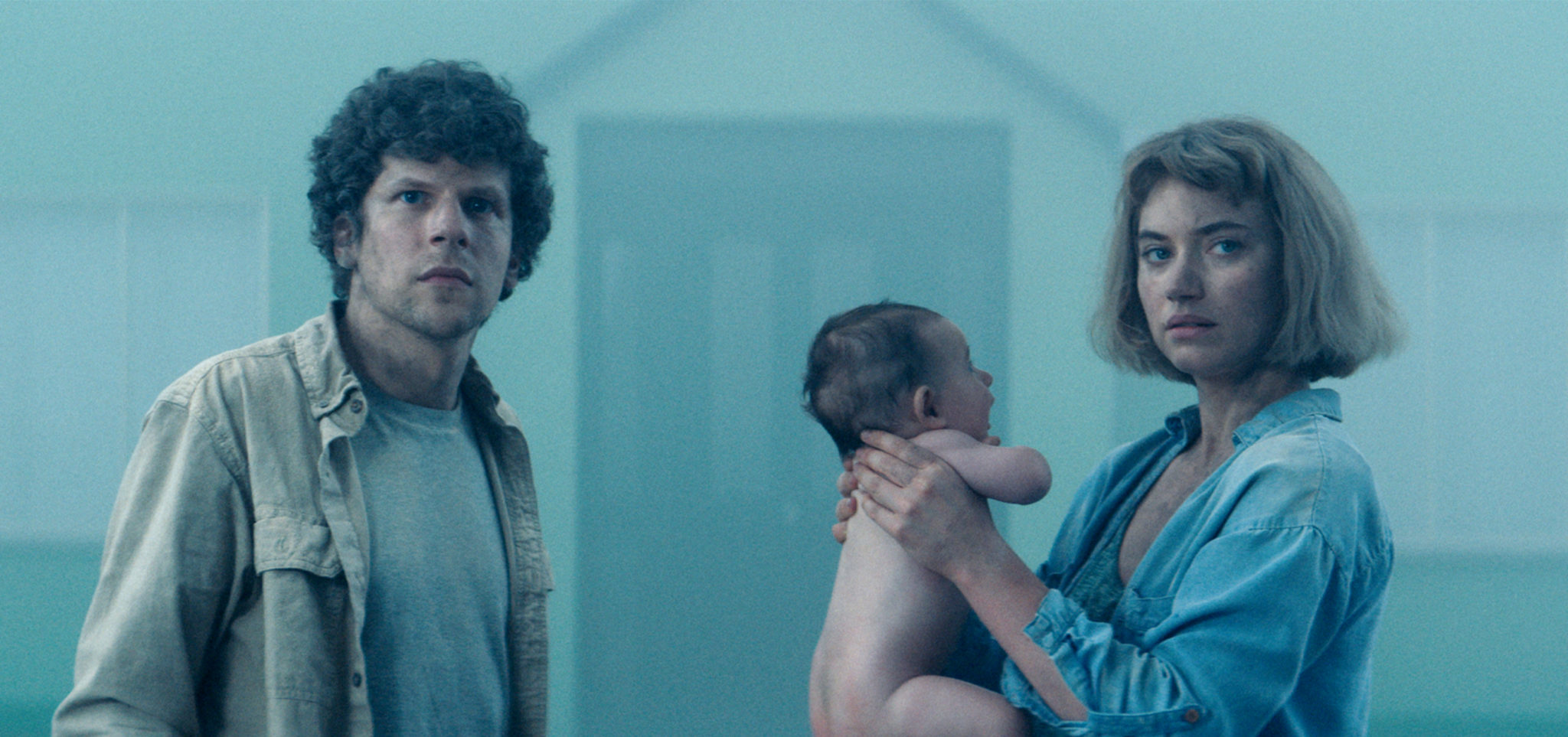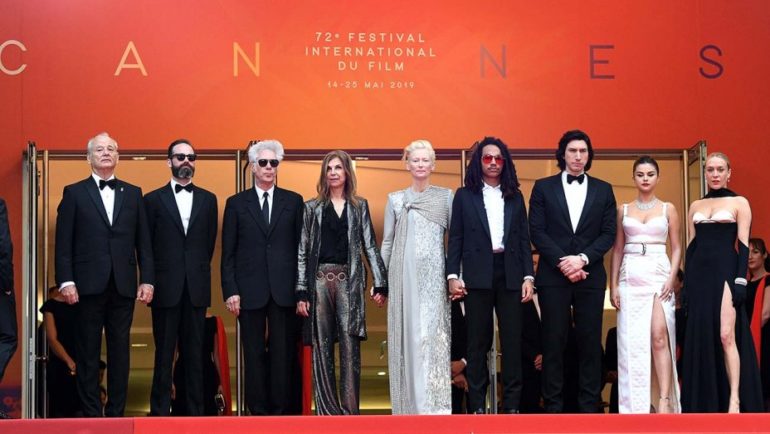Despite a sparkly art-house cast, Jim Jarmush’s Cannes Festival opener proved to be a damp squib for most critical observers. The cool style finally came across as a kind of lethargy as it went from the un-dead to deadpan to dead air. Many genre references seemed ordinary and after a while the running gags got tedious rather than spicing up as they were repeated. As homages go it didn’t bring anything new to the genre. But, perhaps the most phenomenal thing about The Dead Don’t Die was it’s marketing gambit: On 550 screens all around France the opening ceremony (produced by TV partner Canal+) was beamed to cinemagoers and followed by the opening film itself. As if you were there. It is one of a handful of Competition films that aligned their French release with a Cannes premiere.

While The Dead Don’t Die was an ambler, the next film in competition, Les Miserables, was a firecracker that hit the ground running. Malian born French director Ladj Ly opens with documentary footage on the Champs Elysees during the exuberant celebrations that followed France’s World Cup victory in 2018. This was also a victory for multiculturalism as most of the team are of African or Arab origin, so it was a pretext for the fans from the poor banlieue to venture Paris’ more upmarket neighbourhoods. Ly managed to pepper this opening documentary footage with cameos of his young actors among the throng for this one day that everyone in France felt entirely French. Back to their reality, the tale itself goes on to recount the travails of three cops in Montfermeil. The title is a modern recollection of Victor Hugo’s Les Miserables set in the same district in the 19th century. Ly’s quite different contemporary tale introduces a diverse set of populations, including the Muslim Brotherhood, who are somewhat in favour with the cops because of their policing of vice, notably drug dealing. Then there’s the local African mayor, a no-nonsense track-suited hulk of a man, who is resourcefully corrupt, taking his cut in all kinds of ways through trader permits and the like. There is the dealer gang who seem to have an understanding with the cops. And, of the course, the tearaway kids always on the look out for thrills in the stultifying summertime heat and inherent boredom of their lives. Among them is Issa, the kind of young teenager who is always in trouble and will never get an even break. Another is Buzz, a loner tech nerd, a peeping tom who likes to video girls in their windows in private moments. He also has a filming drone, adding an overview perspective to the housing towers. He happens to capture a violent abuse of power by the cops who get into a pitched battle with Issa and his mates after trying to bring him in. A visiting gypsy circus is in the neighbourhood and Issa is suspected of having stolen a lion cub, putting the gypsies on the warpath and wreaking havoc among the sensitively balanced communities. In a trigger happy moment, one cop, the African of the trio, ‘accidentally’ flashballs Issa from close range. Issa’s limp unconscious body is bundled around chaotically until a peaceful solution can be found among the factions and, more importantly, until the cops can recover Buzz’s incriminating video card. Then things really get out of hand…
For a first film it is top notch in terms both of cinema and pertinence promising it a mention in the prizes.

However, at the halfway stage, the front runner for the Palme d’Or, among both French and international critics is Pedro Almodovar’s Pain and Glory. Already released in Spain, it was touted as being an average Almodovar for its low-key style and the lack of fantasy and melodramatic exuberance usually associated the Spanish director. But ultimately this philosophical pacing and tone is what makes it fresh and ring with greater sincerity. Learning that it was inspired by his own health and confidence issues regarding whether he would ever make another film only adds to the authenticity and artistic pleasure that is on the screen. Antonio Banderas plays celebrated filmmaker Salvador Mallo an almost acronym for Almodovar. And he does it with wonderful sensitivity. Mallo seeks out the lead actor of his first film thirty years ago. Because of the actor’s penchant for heroin, the director felt he ruined that film and they haven’t spoken since. Now, they kind of make up and Salvador himself, in the throes of his various medical issues, takes up heroin opening doors to other crucial reminiscences from his childhood and artistic beginnings. Penelope Cruz shines through as his mother. In an interview with Screen Daily Almodovar says “(Antonio) knew a lot of stuff in my life first hand. His performance is magnificent and I’m very grateful. And Penelope was a natural choice to play the mother. I’ve always seen Penelope as somebody with maternal instincts.”

Saturday saw the highlight of the Irish Cannes with the screening of Lorcan Finnegan’s Vivarium. It tells the nightmare tale of a likeable young couple, Gwen and Tom, played by Imogen Poots and Jesse Eisenberg. They are looking to buy a house and build their nest. They chance upon a realtor that proposes a perfect home in the midst of what could be a ghost estate for it’s uniform emptiness. But the alienation only begins there as the couple discovers that this is a surreal if not supernatural labyrinth from where they cannot escape. Now trapped, very soon they are delivered a baby (literally in a cardboard box) and instructed to raise the strange and belligerent “boy”. As a film it’s horror with a science fiction component and it is not afraid of a throwing out a metaphorically loaded social critique of wishing for a conventional life. Luckily, on that score, the parallels are so exaggerated as to produce only mild discomfort. But that doesn’t stop the film from being terrifying.

